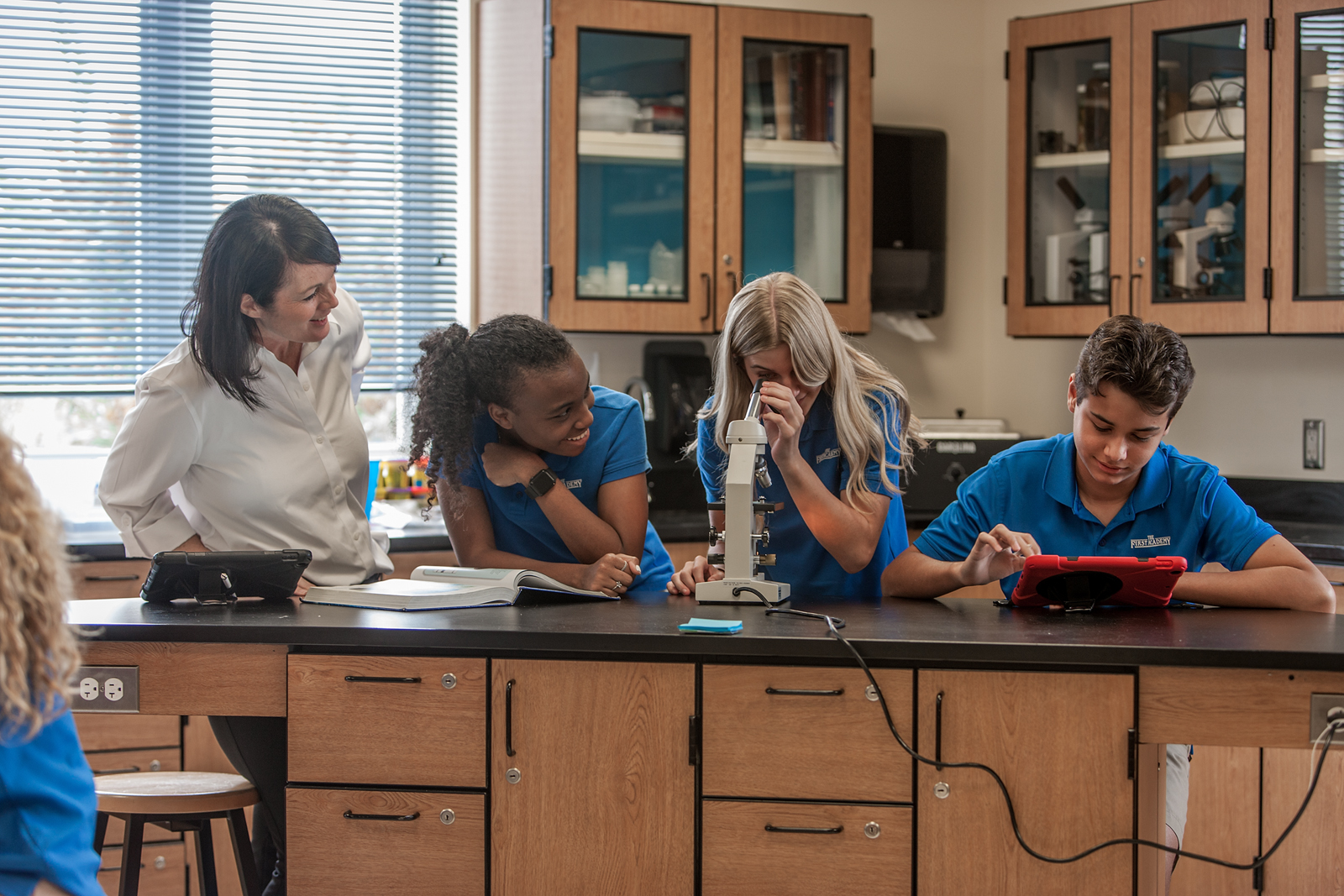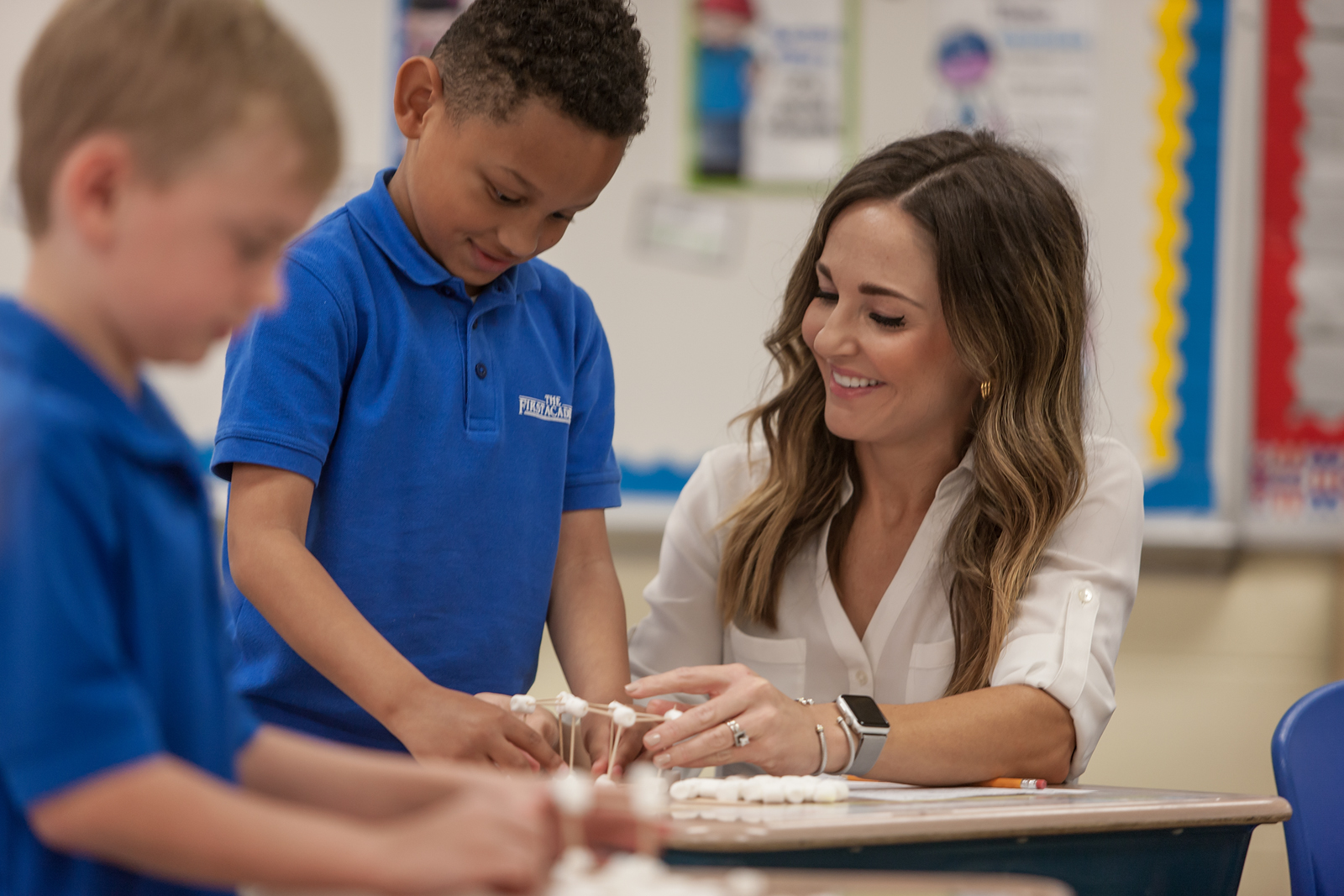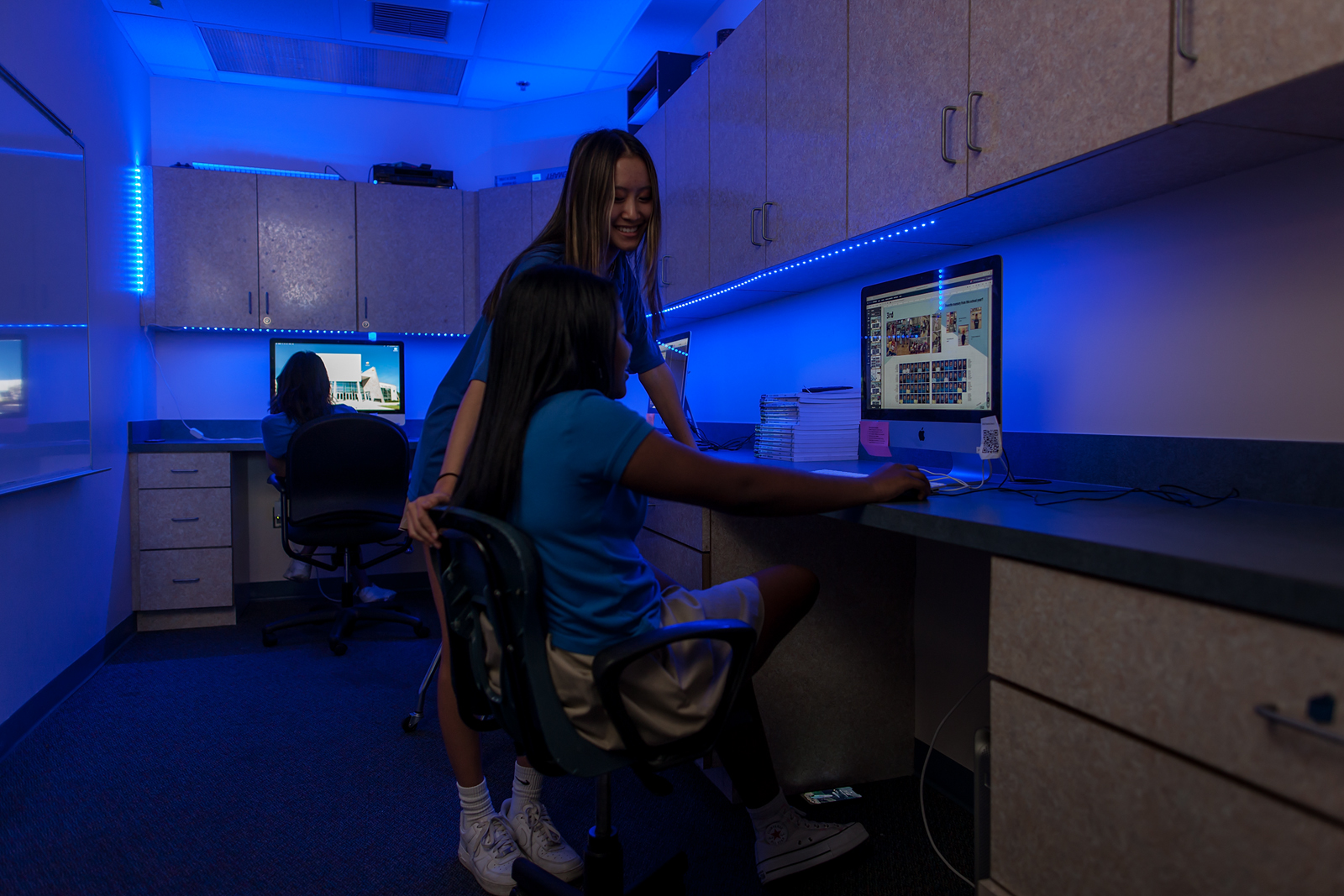Diversity | The First Academy (original) (raw)
At The First Academy, we embrace a core set of beliefs that inform everything we do and think in terms of economic, cultural, and racial diversity.
First, we believe the power of the Gospel transforms our thoughts, attitudes, and actions.
“The Messiah has made things up between us so that we’re now together . . . He tore down the wall we used to keep each other at a distance. Instead of continuing with two groups of people separated by centuries of animosity and suspicion, he created a new kind of human being, a fresh start for everybody. Christ brought us together through his death on the cross.”
Left to our own power none of us loves, honors, or respects God or others as we should. Economic, cultural, and racial differences often become showcases for the ugliness of sin. However, the Gospel shows us a better way. It calls out and kills this sin and in its place raises up and empowers a new kind of life which delights in God and willingly sacrifices for the good of others. The Gospel allows us to see our economic, cultural, and racial differences not as reasons to divide but as opportunities to celebrate the goodness and grace of our God.
Second, we believe in the value and dignity of every person.

James 2:8-9: “You do well to obey the Scriptures: “Love others as you love yourself.” But if you play up to these so-called important people, you go against the Rule and stand convicted by it. You can’t pick and choose in these things, specializing in keeping one or two things in God’s law and ignoring others.”
Because every person bears the image of God, they possess inherent value and dignity. This dignity is derived from our being marked by God’s image and is not dependent upon our economic, racial, or cultural status. God not only stamps humanity with his image but also sets us into particular cultures at particular times. Like a master craftsman who meticulously refines and perfects, God has given each of us a particular cultural heritage with which to glorify him. This variety is not merely to be tolerated but to be celebrated and embraced for the good gift it is.
Third, we believe in the wisdom and beauty of God’s design for humanity.

Psalm 139:
“I am marvelously made! You know me inside and out, you know every bone in my body; You know exactly how I was made, bit by bit, how I was sculpted from nothing into something. Like an open book, you watched me grow from conception to birth; all the stages of my life were spread out before you, Your thoughts—how rare, how beautiful! God, I’ll never comprehend them! I couldn’t even begin to count them— any more than I could count the sand of the sea.”
Frederick Douglass said, “I know of no rights of race superior to the rights of humanity.” To be human is a staggering reality. God – who created from nothing – made each and every man, woman, boy, and girl in His image, which is to say that in our humanity we all bear the marks of our maker. He has uniquely designed humanity so that we might live in community with him (and each other!) and enjoy him (and each other!) forever.
Fourth, we believe the best about every member of our school community.

John 17: 20-22:
“The goal is for all of them to become one heart and mind—just as you, Father, are in me and I in you, so they might be one heart and mind with us. Then the world might believe that you, in fact, sent me. The same glory you gave me, I gave them, so they’ll be as unified and together as we are—I in them and you in me. Then they’ll be mature in this oneness, and give the godless world evidence that you’ve sent me and loved them in the same way you’ve loved me.”
As God’s image-bearers and as members of the school community, we follow the teaching of John 17 and believe the best about each other, to create a culture of mutual respect, and to encourage deep affection for one another. The fruit of these labors is a learning environment which shapes not only the mind but the heart as well and produces the kind of people who are prepared to be God-exalting, others-focused leaders in their homes, churches, and communities.